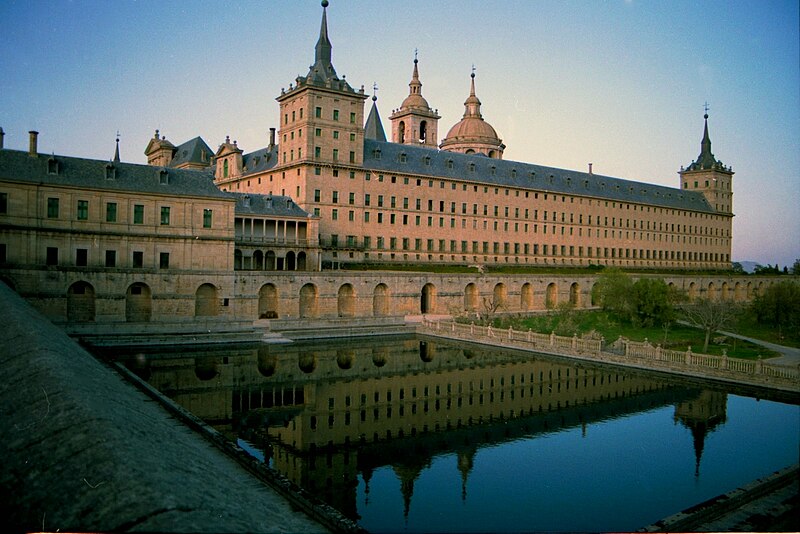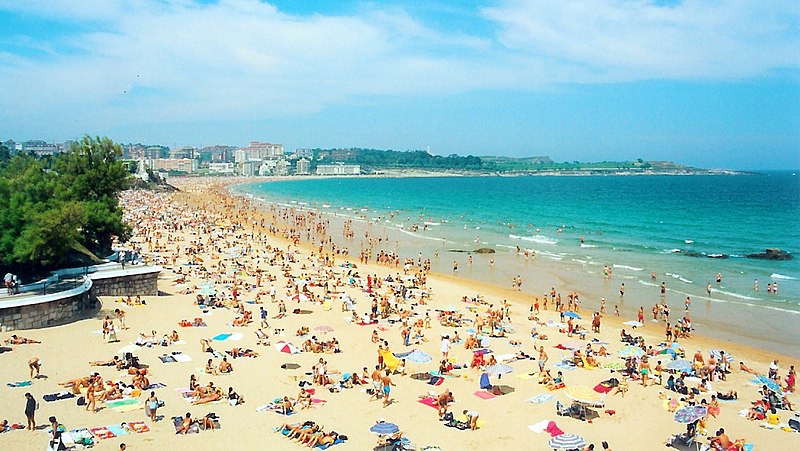Your ideal country/place to visit (in the next few years).
-

-
Enlargement of the European Union is the process of expanding the European Union (EU) through the accession of new member states. This process began with the Inner Six, who founded the European Coal and Steel Community (the EU's predecessor) in 1952. Since then, the EU's membership has grown to twenty-seven with the most recent expansion to Bulgaria and Romania in 2007.

Currently, accession negotiations are under way with several states. The process of enlargement is sometimes referred to as European integration. However, this term is also used to refer to the intensification of co-operation between EU member states as national governments allow for the gradual harmonisation of national laws.

To join the European Union, a state needs to fulfil economic and political conditions called the Copenhagen criteria (after the Copenhagen summit in June 1993), which require a stable democratic government that respects the rule of law, and its corresponding freedoms and institutions. According to the Maastricht Treaty, each current member state and the European Parliament must agree to any enlargement.

-

The euro (sign: €; code: EUR) is the official currency of the Eurozone: 16 of the 27 Member States of the European Union (EU). It is also the currency used by the EU institutions. The eurozone consists of Austria, Belgium, Cyprus, Finland, France, Germany, Greece, Ireland, Italy, Luxembourg, Malta, the Netherlands, Portugal, Slovakia, Slovenia and Spain. Estonia is due to join the eurozone on 1 January 2011. The currency is also used in a further five European countries, with and without formal agreements, and is consequently used daily by some 327 million Europeans. Over 175 million people worldwide use currencies which are pegged to the euro, including more than 150 million people in Africa.
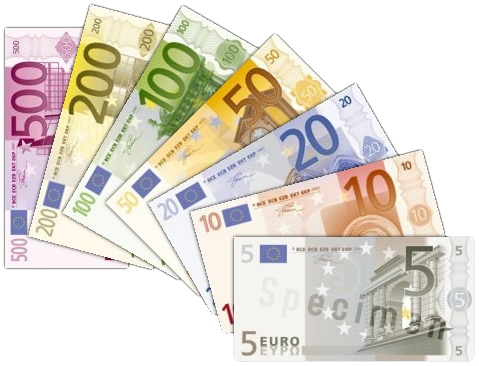 Banknotes
BanknotesThe euro is the second largest reserve currency (a status it inherited from the German mark) as well as the second most traded currency in the world after the U.S. dollar. As of June 2010, with more than €800 billion in circulation, the euro is the currency with the highest combined value of banknotes and coins in circulation in the world, having surpassed the U.S. dollar. Based on IMF estimates of 2008 GDP and purchasing power parity among the various currencies, the eurozone is the second largest economy in the world.

The name euro was officially adopted on 16 December 1995. The euro was introduced to world financial markets as an accounting currency on 1 January 1999, replacing the former European Currency Unit (ECU) at a ratio of 1:1. Euro coins and banknotes entered circulation on 1 January 2002.
-
European Central Bank

The ECB is in Frankfurt, Germany, is in charge of Eurozone's Monetary policy.
-
nice pics

-

Spain, officially the Kingdom of Spain, is a country and member state of the European Union located in southwestern Europe on the Iberian Peninsula. Its mainland is bordered to the south and east by the Mediterranean Sea except for a small land boundary with the British Overseas Territory of Gibraltar; to the north by France, Andorra, and the Bay of Biscay; and to the northwest and west by the Atlantic Ocean and Portugal.
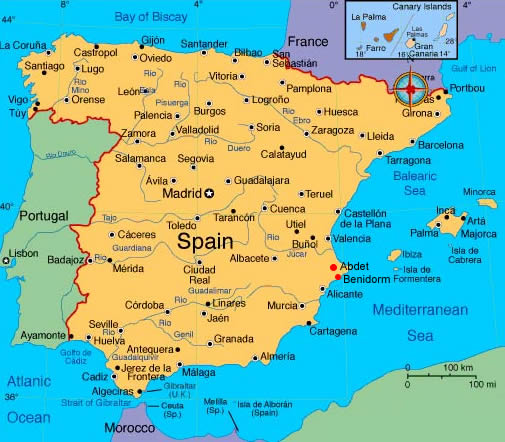
Because of its location, the territory of Spain was subject to many external influences since prehistoric times and through to its dawn as a country. Conversely, it has been an important source of influence to other regions, chiefly during the Modern Era, when it became a global empire that has left a legacy of over 400 million Spanish speakers today, making it the world's second most spoken first language.
-

-
If I'm not wrong, Spain won world cup.

-
you are not wrong...

-

-

-

-
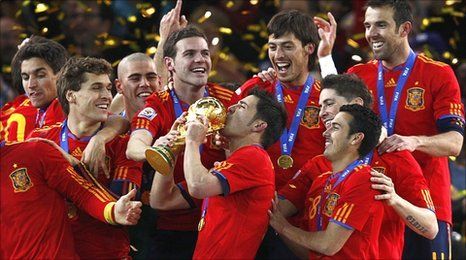
-
Nice Pics..

-
Bull fighting is now banned in the Catalunya region.
-
Originally posted by Kuali Baba:
Bull fighting is now banned in the Catalunya region.
Its said that its banned but it is still going on with almost full attendance everytime there is a fight, just went to one last month. There was a huge protest outside the monumental ring but the fight went on for the next one and half hour. I got out after 3 fights although there was 4-5 fights. It was just too much for me to take watching them kill the bulls on the spot. The ring is pretty much filled with tourists both out of Spain and those from other parts of Spain where Bullfighting is still rampant. That said, that was the first and probably last time I will see that. Although I would not want to judge those people who enjoyed it, its the culture they had for so long but to me, its not something I wanna go thru again.
-
wow.. you been there... got any pics to post here ? please..

-
Spanish territory also includes the Balearic Islands in the Mediterranean, the Canary Islands in the Atlantic Ocean off the African coast, and two autonomous cities in North Africa, Ceuta and Melilla, that border Morocco. Furthermore, the town of Llívia is a Spanish exclave situated inside French territory. With an area of 504,030 km², it is the second largest country in Western Europe and the European Union after France.
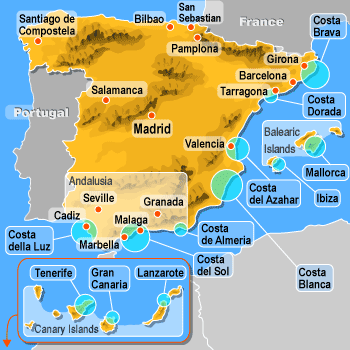
-
At 504,782 km2 (194,897 sq mi), Spain is the world's 51st-largest country. It is some 47,000 km2 (18,000 sq mi) smaller than France and 81,000 km2 (31,000 sq mi) larger than the U.S. state of California. The Teide (Tenerife, Canary Islands) is the highest peak of Spain and the third largest volcano in the world from its base.

-
Antarctica, the last frontier.

-
Exterior Alcazar Segovia
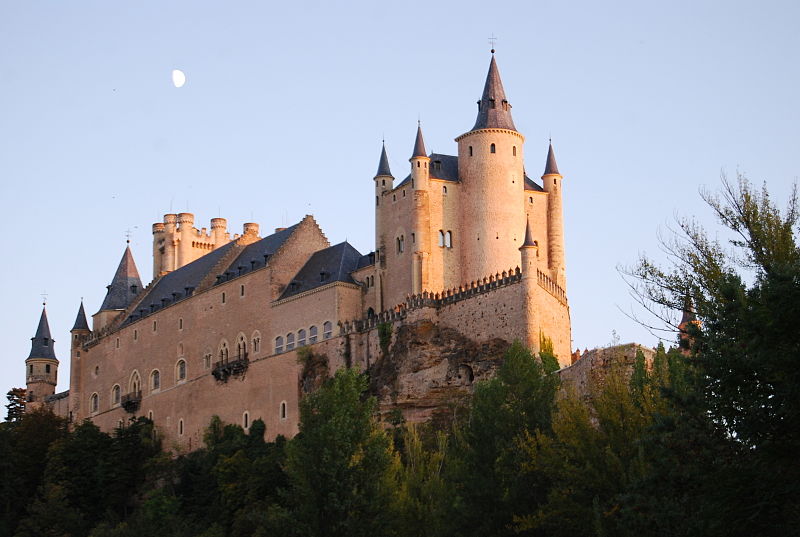
-
 Muralla de Ávila
Muralla de Ávila -
Monastery of San Lorenzo de El Escorial (near Madrid)
